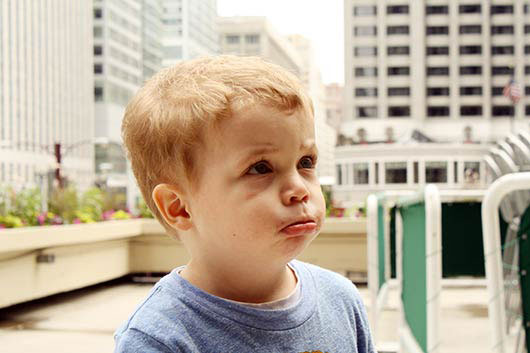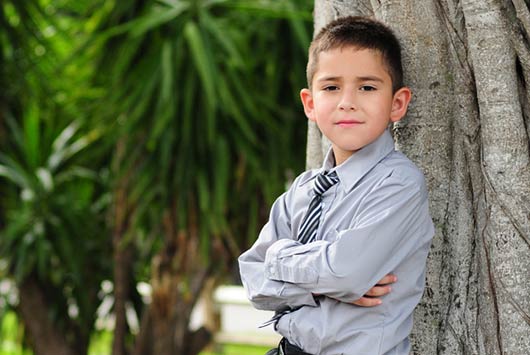
When it comes to reprimanding your kids and teaching them a lesson, there are many avenues to take. Some parents prefer not to punish, while others opt for the typical “time out.” But sometimes, neither of those approaches is enough, sometimes your favorite approach fails. Many parents use the ‘Counting-to-3’ warning method. Including myself. Does it work?
When my 4-year-old son throws a fit, which thanks to la Virgen has happened only a few times, I have to breathe and refrain from doing what I really want to do, which is yell at the top of my lungs. I know many moms have felt that sense of frustration, so I know that I’m not alone.
To me, what works best is reinforcing the positive when he does something great, like helping me with his baby sister or cleaning up, which he hates doing; and, giving him a sweet treat when he eats all of his food. I also tell him when I’m not happy with his behavior and let him know how happy I am when he cooperates and smiles instead of whine. That is something that works for him. He likes me happy!
Read Related: Discipline Alternatives for Young Children
Jessica Sicsu, a Venezuelan lawyer and mother of two girls says: “I use the counting method 1, 2 and 3… if by the time I count three, they have not done it or continue doing it (as applicable) they either go to time out or there is a consequence (e.g., taking away a toy, not allowing them to watch TV)…We always announce what the consequence will be before counting.”
Alejandro Clavier, Pediatrician and Director of Centro de Salud Esperanza in Chicago offers these suggestions for disciplining your child:
- Positive reinforcement works wonders.
- Everyone must be on the same page. Mom, dad and grandparents should have a similar approach and should not contradict each other.
- 1, 2, 3 timeout is very good when used all the time and used by everyone (patents, grandparents). But know how to pick your fights; there are small things that you can let go.
- Start early, as young as 9-12 months.

It seems that whatever the method: giving them ice-cream when they eat all their dinner or rewarding a good behavior with a word of encouragement is key when it comes to teaching children discipline. Miguel Cabrera a father of two toddler boys in Chicago says, “It is essential to do as you say and follow through on your word.” So if you offer something in return for a desired behavior, you MUST complete the transaction. Your word is the most valuable thing.
Using punishment as an educational tool may not be as effective, according to Esther Serrano, a pediatrician in Valencia, Spain. Serrano told El Mundo that we should avoid using punishment habitually, since the child learns how to lie or disappear in order to avoid being punished.
But what happens when you’re child is a teen or tween? That 1, 2, and 3 technique is not going to work, at all. What kinds of punishment are appropriate and effective? Back in my day, we were grounded without TV in my tweens or without going to a quinceañera party in my teens.
Many parenting sites recommend setting rules and putting them in writing, advising parents to be firm and consistent and know which rules are important to you. It’s also important to be a good role model, teach responsibility, be involved, and understand.
Remember to be understanding. If your child broke curfew, remember the time you did the same, or cut them some slack by not punishing them on the first mishap. Give your child a warning and explain why and what will happen if the child breaks curfew again. If you’re one of those parents that feels the need to be cool, remember that you have to be a parent and teach at the same time that you love. And also important is that you never break a promise. If you said you will go with her to see Miley Cyrus, then go! You will need to be strict at some point, it will break your heart to get that way with them, but tell them it’s for their own well-being. One day, they’ll understand.
There is no question that parenting is as tough as it is rewarding. So it is up to us as parents to practice the most sensible way to discipline our children over the years. Whatever works for your family may not work for others, and it’s important to instill values and good behavior early in life. It’s also important to remember that kids will be kids. Remember all of the things you did as a child, some of which you got away with and some of which you didn’t? Try not to sweat the small stuff…and always remember to breathe before reacting!










